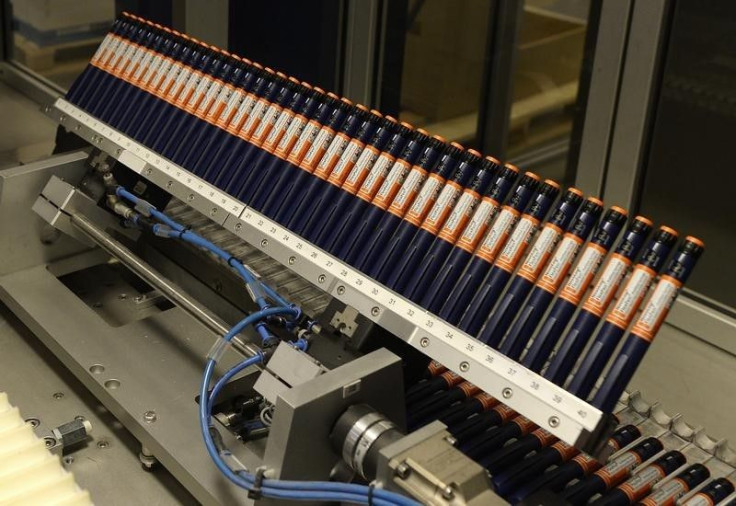FDA Accepts Application Resubmission For Tresiba, Novo Nordisk's Insulin Drug

(Reuters) - Denmark's Novo Nordisk A/S said the U.S. Food and Drug Administration accepted a resubmitted application for its key insulin drug, Tresiba, based on interim analysis data from a clinical trial.
Tresiba, already available outside the United States, was rebuffed by the FDA two years ago on concerns that the drug could be linked to higher rates of heart attacks or strokes.
The agency had asked Novo to conduct a dedicated trial to test for such risks, and the company said on Tuesday that it expects to complete the study in the second half of 2016.
When Novo said in late March that it was looking to resubmit the marketing application for Tresiba and a related drug, industry analysts had estimated Tresiba could get approved as early as October this year, based on the interim data.
Had Novo waited to weave in the results from the full trial in its application, Tresiba would likely not have hit the U.S. market in 2016, putting the world's top insulin maker behind its main rival Sanofi.
A U.S. launch within the next year may help Tresiba see off rival products, most notably Sanofi's Toujeo, designed to succeed the French drugmaker's blockbuster drug, Lantus.
Tresiba, a long-acting form of insulin known chemically as degludec, is currently forecast to generate annual sales of $2.2 billion by 2020, according to Thomson Reuters Cortellis. Tresiba also gives Novo an important foundation for future combination regimens in the United States, which accounts for slightly more than half of a $23 billion global diabetes market, Morningstar's Karen Andersen said in note in March.
Novo Chairman Göran Ando had told Reuters in March last year that getting Tresiba approved by the FDA was one of the most important short-term goals for the company.
The company's U.S.-listed shares were little changed in extended trade on Tuesday.
(Reporting by Natalie Grover in Bengaluru; Editing by Don Sebastian and Savio D'Souza)
Published by Medicaldaily.com



























